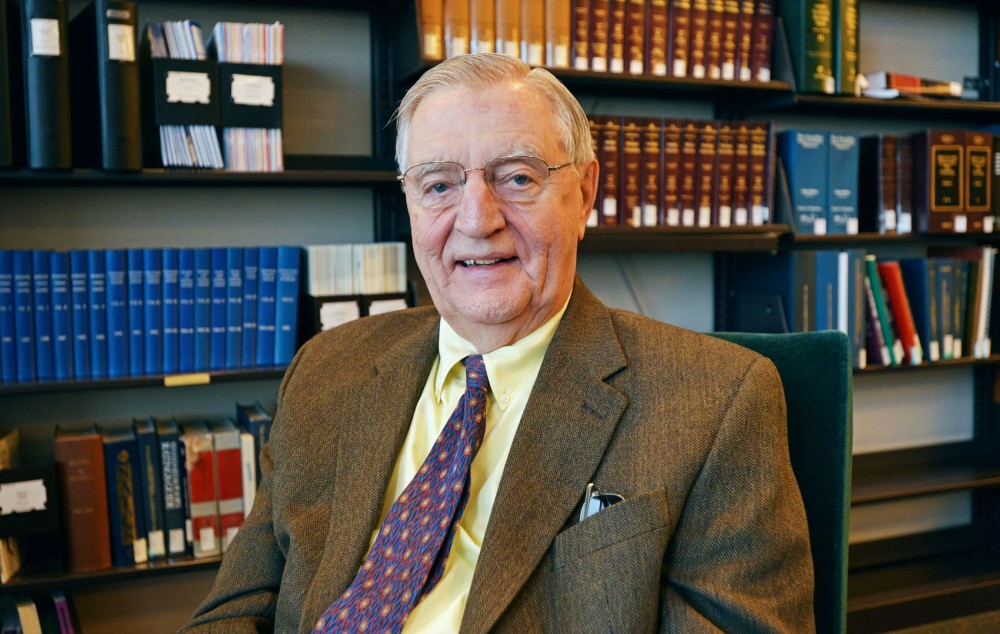For the past seven years, a former U.S. vice president has taught at the University of Minnesota.
But this spring will be Walter Mondale’s final semester teaching his entry-level public affairs course.
Mondale has taught the course, Great Debates of Our Time: U.S. Policy and Politics, with political science professor Larry Jacobs at the Humphrey School of Public Affairs.
The course focuses on the constitutionality of presidential policies and decisions throughout later American history.
Mondale, who served as vice president to President Jimmy Carter in the late 1970s, earned his undergraduate degree at the University prior to serving in the Korean War. He returned to the University to earn his law degree in the 1950s.
Before becoming the first vice president to live at Number One Observatory Circle — the official home of the vice president — Mondale served as the Minnesota attorney general and a U.S. senator for two terms.
Now at the University, he and Jacobs utilize Mondale’s firsthand experience in Washington, D.C., to work through national issues like President Harry Truman’s seizure of U.S. steel companies and President Richard Nixon’s Watergate scandal.
Mondale, 84, said he likes explaining the significance of major U.S. issues.
“I enjoy getting into it again.”
Students who have taken Mondale’s course say his background makes the class unique.
“When you’re interested in politics, Mr. Mondale is definitely one of the most affluent Minnesota politicians,” said psychology senior Eskender Abebe, who took the class two years ago.
“Being able to listen to his lectures was very informative,” he said.
Mondale, who also teaches courses in the University’s Law School, said he teaches “because I want to.”
“I’m not on anyone’s payroll.”
Jacobs and Mondale came up with the idea for the class when Jacobs was awarded the Walter F. and Joan Mondale chair at the Humphrey School. Jacobs said he was able to spend time getting to know Mondale through the position.
“I had been teaching courses in the Department of Political Science for years that discussed the issues that Mr. Mondale had addressed his entire career,” Jacobs said. “To have a chance to talk with him was a thrill.”
Mondale felt the issues they planned to discuss in the class were very important, so he suggested they make the class available to everyone.
“This is the one class I wish I’d had the opportunity to take as an undergraduate,” Jacobs said.
He said the class is special because Mondale is not just a story teller — he also provides a great analytical mindset.
“He is a very unique scholar of our Constitution and history and has a high level of experience,” he said.
Although Mondale served as a Democratic politician, Jacobs noted the class is not partisan in any way. He said when they start the class, they often tell students to “check your partisan hats at the door, they won’t help you.”
As of Tuesday, only 25 of the 200 seats have been filled for the class.
Right now, there are no plans to continue the class without Mondale. He said that perhaps someday the class will be continued, but for now, this is the last semester.
He said the end of the class doesn’t mean he’s retiring; he’s just “moving on to where I feel I can be helpful.”


